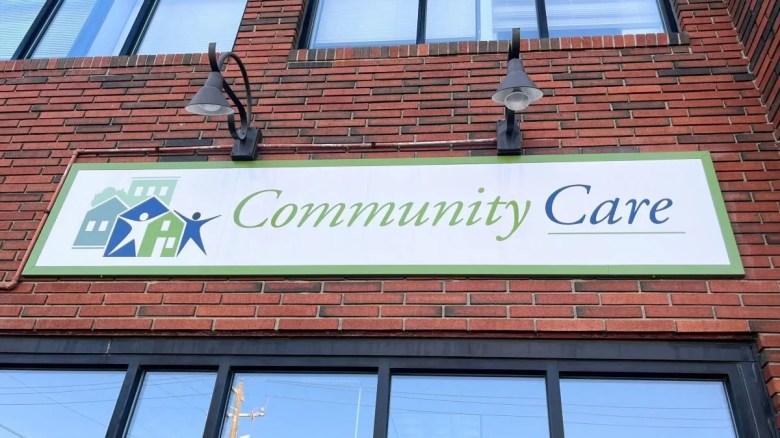Lifestyle
Maine’s Child Visitation Provider Fails to Meet Legal Requirements

Maine’s largest contractor for child visitation services, Community Care, has significantly failed to meet its obligations, scheduling only 10% of required visits within a seven-day timeframe. This stark shortfall has raised concerns about the welfare of children and families affected by the state’s child protection system.
According to an analysis by The Maine Monitor, Community Care managed to schedule just 30 of the 286 referrals for supervised visits within the mandated seven days last year. This performance is well below the contractual requirement that 90% of referrals be handled in that time frame. The state law stipulates that visits must be arranged promptly after children are removed from their homes due to abuse or neglect, emphasizing the importance of maintaining parental bonds during traumatic transitions.
The nonprofit organization, which operates in five of Maine’s eight Department of Health and Human Services (DHHS) districts, expanded its services in 2023 but has faced significant challenges in meeting its contractual obligations. The data indicates that the median wait for a scheduled visit reached 29 days, leaving families in distress as they await crucial interactions.
In December 2023, despite its underperformance, DHHS extended Community Care’s contract, increasing the agency’s billing rate to a staggering $292,791 monthly, or approximately $3.5 million annually. This decision has prompted criticism from various stakeholders, questioning the accountability of the agency and the state’s oversight processes.
Alisa Morton, a spokesperson for DHHS, acknowledged the issues, stating, “That current providers are not providing expected services is of serious concern to the Department.” She did not clarify whether the state had considered penalties or alternative providers in response to Community Care’s inadequate performance. Instead, Morton emphasized that providers are compensated only for services delivered, leaving many to wonder about the implications for taxpayer money.
The impact of Community Care’s failures extends beyond missed visits. Delays in scheduling can prolong the time needed for families to reunite, adding further strain on DHHS caseworkers who may need to step in to facilitate visits themselves. This additional burden is compounded by an already overwhelming workload, according to statements from the Maine Service Employees Association, which represents caseworkers.
Various other state-contracted providers have shown that it is possible to meet contractual obligations more effectively. For instance, AMHC, a behavioral health clinic, scheduled visits within the required timeframe 48% of the time, and Penquis Community Action Agency exceeded expectations by successfully organizing 93% of its visits within seven days. These contrasting performances highlight systemic issues within Community Care that have yet to be addressed.
Concerns about the adequacy of visitation services have been echoed by legal professionals and child welfare advocates. Taylor Kilgore, an attorney for parents in child protection cases, questioned the accountability measures in place for Community Care, asking, “Who is holding Community Care accountable?”
In Cumberland County, where Community Care operates, the agency’s performance was particularly poor, managing to schedule only 3.6% of its referrals within the required timeframe. This statistic further illustrates the critical need for oversight and improved service delivery in the child welfare system.
Judges overseeing child protection cases have also expressed frustration with the lack of visitation resources. In a ruling from 2023, Judge Jennifer Nofsinger criticized the department for allowing a mother and her child to have only one visit in three months, stating, “The department should have had more resources available to make up for missed visits.”
State oversight agencies have raised alarms about the impact of inadequate visitation services on the reunification process. The Office of Program Evaluation and Government Accountability underscored that insufficient visitation not only burdens DHHS staff but also delays children’s reunification with their families.
Looking ahead, the state’s contracts with Community Care and other providers are due to expire on September 30, 2024. DHHS is currently working on temporary amendments to extend these contracts while planning to issue a request for proposals for visitation services across all districts in early 2026.
As Maine navigates these challenges, the urgency of ensuring timely visitation for families in crisis remains paramount. The continuation of Community Care’s contract, despite its documented failures, raises critical questions about accountability and the commitment to child welfare in the state.
-

 Politics1 week ago
Politics1 week agoDallin H. Oaks Assumes Leadership of Latter-day Saints Church
-

 Sports1 week ago
Sports1 week agoSteve Kerr Supports Jonathan Kuminga After Ejection in Preseason Game
-

 Lifestyle1 week ago
Lifestyle1 week agoDua Lipa Celebrates Passing GCSE Spanish During World Tour
-

 Business1 week ago
Business1 week agoTyler Technologies Set to Reveal Q3 2025 Earnings on October 22
-

 Entertainment1 week ago
Entertainment1 week agoZoe Saldana Advocates for James Cameron’s Avatar Documentary
-

 Science1 week ago
Science1 week agoChicago’s Viral ‘Rat Hole’ Likely Created by Squirrel, Study Reveals
-

 Lifestyle1 week ago
Lifestyle1 week agoKelsea Ballerini Launches ‘Burn the Baggage’ Candle with Ranger Station
-

 Health1 week ago
Health1 week agoRichard Feldman Urges Ban on Menthol in Cigarettes and Vapes
-

 Health1 week ago
Health1 week agoCommunity Unites for Seventh Annual Mental Health Awareness Walk
-

 World1 week ago
World1 week agoD’Angelo, Iconic R&B Singer, Dies at 51 After Cancer Battle
-

 Business1 week ago
Business1 week agoMega Millions Jackpot Reaches $600 Million Ahead of Drawings
-

 Business1 week ago
Business1 week agoMLB Qualifying Offer Jumps to $22.02 Million for 2024









